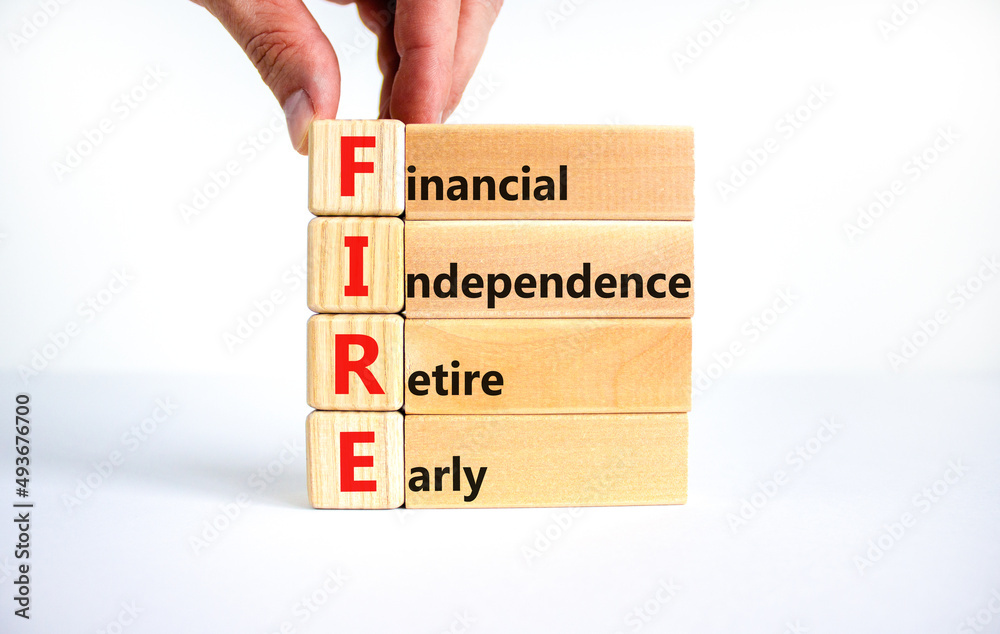Are you tired of the daily grind and dreaming of a life where you can pursue your passions without the constraints of a 9-to-5 job? The Financial Independence Retire Early (FIRE) movement has gained tremendous momentum in recent years, encouraging individuals to rethink their relationship with work and money. This guide will delve into the principles of FIRE, share inspiring success stories, and provide practical steps you can take to embrace this lifestyle. Let’s embark on this journey together toward financial freedom!
Understanding Financial Independence Retire Early (FIRE)
The concept of Financial Independence Retire Early (FIRE) focuses on aggressively saving and investing to achieve financial independence at a young age. At its core, it’s about gaining control over your time, enabling you to do what you love without worrying about financial constraints. Instead of adhering to the traditional retirement age of 65, FIRE advocates encourage people to retire in their 30s or 40s—sometimes even earlier!
The Core Principles of FIRE
To successfully navigate the path to Financial Independence Retire Early (FIRE), it’s essential to grasp its fundamental principles. Here are four key tenets of the FIRE movement:
- Extreme Savings Rate: One of the most critical aspects of FIRE is maintaining a high savings rate. Many adherents aim to save over 50% of their income. This often requires significant lifestyle changes, such as downsizing your home or cutting back on expenses.
- Investing Wisely: Simply saving money isn’t enough. FIRE proponents invest in low-cost index funds or other vehicles that allow their money to grow over time. This emphasis on investing early and wisely is crucial for building wealth that can sustain an early retirement.
- Creating Passive Income: In addition to traditional investment returns, many individuals pursuing Financial Independence Retire Early (FIRE) generate passive income through rental properties, dividend stocks, or side hustles. This diversified income stream can provide a safety net during retirement.
- Mindful Spending: Achieving FIRE requires rethinking your spending habits. Many FIRE advocates adopt minimalist lifestyles, focusing on spending their money on experiences and values rather than material possessions.
My Journey Towards Financial Independence Retire Early (FIRE)
As someone who has embraced the principles of Financial Independence Retire Early (FIRE), my journey has reshaped not just my financial landscape, but my entire outlook on life. Imagine waking up each day with the freedom to explore your interests, connect with loved ones, and pursue passions you never had time for when consumed by work. That’s the reward of the hard work I put in years earlier.
Setting Goals and Taking Action
To kickstart my journey, I began by clearly establishing my financial goals. I adopted a budget that prioritized savings, adhering to the mantra, “pay yourself first.” The act of setting a percentage of my income aside for savings became automatic, making it easier to stay disciplined.
An Image of Financial Freedom
As I worked toward achieving my Financial Independence Retire Early (FIRE) goals, this graphic symbolized my commitment and passion for reaching a state of financial freedom.
Building Community and Learning
One of the most rewarding aspects of the FIRE community is the connection and support shared among its members. Online forums, blogs, and podcasts are filled with valuable resources, insights, and motivation. Engaging with this community helped solidify my understanding and commitment to the principles of Financial Independence Retire Early (FIRE).
Common Misconceptions about FIRE
Many people have misconceptions about the Financial Independence Retire Early (FIRE) lifestyle. Let’s set the record straight on a few of these myths:
- FIRE means never working again: While some people decide to completely stop working, others continue to work in lower-stress, part-time, or passion-driven jobs. The essence of FIRE is flexibility and choice.
- FIRE is only for the wealthy: Many individuals on the FIRE path come from varying financial backgrounds. The key is a commitment to saving and investing, not starting with a large fortune.
- It’s too extreme: Not everyone needs to follow the strictest of FIRE guidelines. There are various interpretations of FIRE, including “Lean FIRE” (minimalist lifestyle) and “Fat FIRE” (more luxurious retirement), allowing for a personalized approach.
Tips to Start Your Financial Independence Journey
Every journey begins with a single step. Here are actionable tips to help you embark on your Financial Independence Retire Early (FIRE) path:
- Track Your Spending: Understanding where your money goes is crucial. Use apps or spreadsheets to monitor your expenses and identify areas for improvement.
- Develop Multiple Income Streams: Explore side hustles, freelancing opportunities, or investments that generate passive income. Diversification is essential in building a robust financial foundation.
- Pursue Knowledge: Read books, take courses, or listen to podcasts on personal finance and investing. The more informed you are, the better your financial decisions will be.
- Build an Emergency Fund: Prepare for unexpected expenses by maintaining a safety net of savings that can cover three to six months of living expenses.
The Road Ahead: Staying Committed to FIRE
As I continue my journey towards Financial Independence Retire Early (FIRE), staying committed remains essential. Life will throw challenges my way, but I’ve cultivated resilience through community support, knowledge, and ongoing education. This journey is not just about money. It’s about designing a life that aligns with my values and priorities.
In closing, whether you’re considering taking the first steps towards Financial Independence Retire Early (FIRE) or have started down this path, remember that every financial journey is unique. Celebrate small wins, learn from setbacks, and stay focused on your vision of freedom. In a world where the traditional notion of retirement is evolving, it’s up to you to define what financial independence means for yourself. Are you ready to take the leap?



